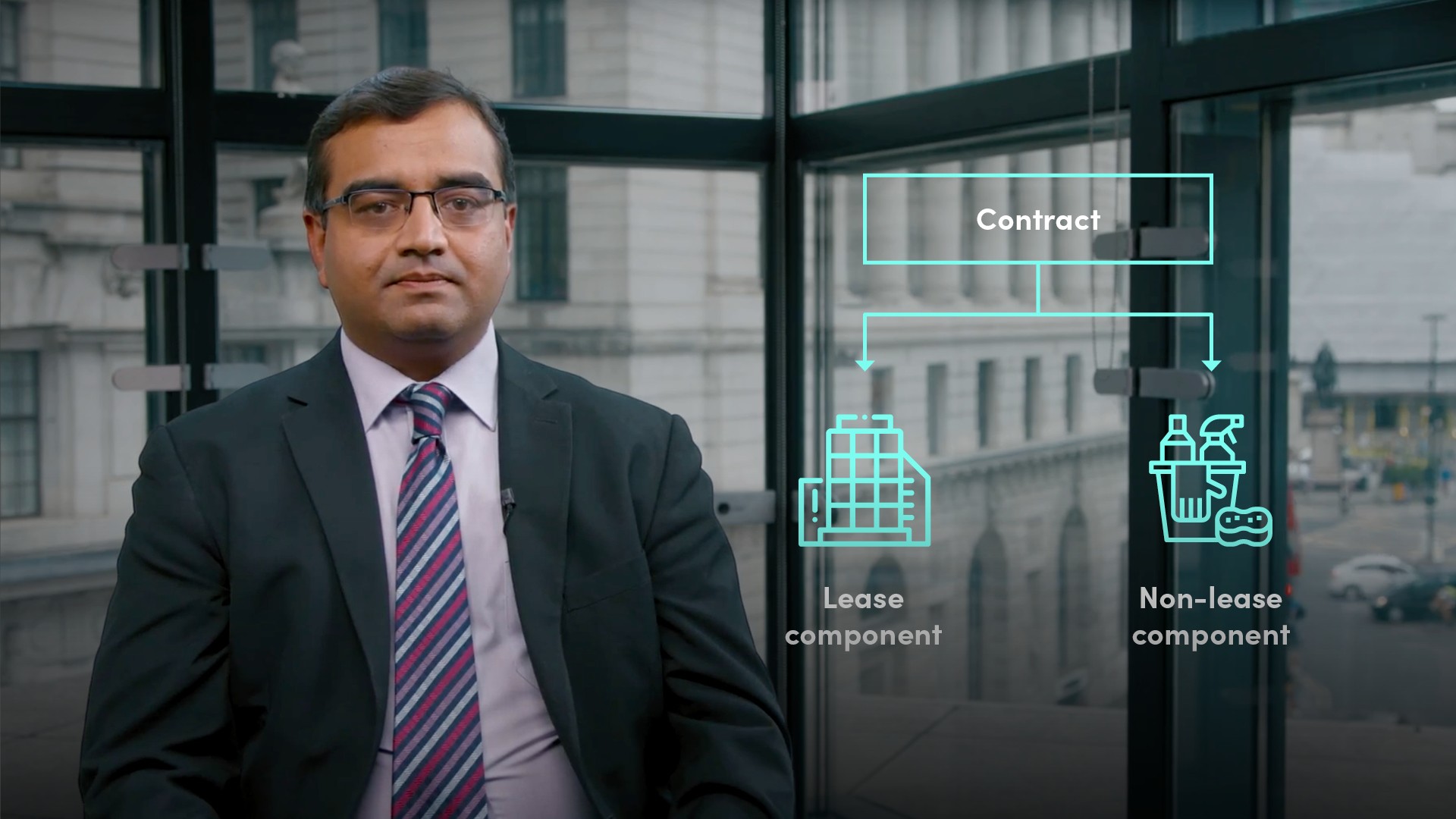
IFRS 16 Overview

Saket Modi
20 years: Chartered accountant & educator
In this video, Saket discusses what a lease is, services components that may accompany a lease, optional exemptions and sale and leaseback transactions. Be sure to watch part II of this series in which Saket further explains IFRS 16 leases.
In this video, Saket discusses what a lease is, services components that may accompany a lease, optional exemptions and sale and leaseback transactions. Be sure to watch part II of this series in which Saket further explains IFRS 16 leases.

IFRS 16 Overview
8 mins 55 secs
Key learning objectives:
Describe a lease
Identify the requirements under IFRS 16 for both lease and service components
Describe the IFRS 16 optional exemptions
Define a sale and leaseback transaction
Overview:
Leasing is a widely used financing solution. It enables entities to access and use property, plant and equipment without incurring large cash outflows at the start. Leases may have accompanying service components which have certain disclosure requirements under IFRS 16. Similarly, in a sale and leaseback transaction, the roles of the buyer and seller are essentially reversed.
Under IFRS 16, what are leases recognised as on the statement of financial position?
- Right-of-use assets - Depreciated or amortised, and finance cost or interest expense is recognised on the financial liability in the income statement. The lease payments reduce the financial liability balance
- Financial liabilities
What is a lease?
A contract, or part of a contract, that conveys the right to control the use of an identified asset for a period of time in exchange for consideration.
When does control exist?
If the customer has:
- Right to substantially all the economic benefits from the use of the identified asset
- Right to direct the use of that asset. If the supplier has either of these rights, then the contract is not a lease
What are the requirements under IFRS 16 for both lease and service components?
- For example, building leases with cleaning and maintenance services
- The lessee is required to split the lease and non-lease components and account for them separately; the non-lease component is outside the scope of IFRS 16
- The total payment made is split between lease and non-lease components based on relative stand-alone prices of components. If prices are not observable, estimates that maximise observable information are used
What are the IFRS 16 optional exemptions?
- Short-term leases - lease that has a lease term of 12 months or less. A lease with a purchase option is not a short-term lease. The exemption must be chosen by class of the underlying asset.
- Leases of low value assets - in response to concerns about costs of applying the standard to large numbers of leases of low value assets. The exemption is available on a lease-by-lease basis. Examples of exempt items include: tablets and personal computers
What is a sale and leaseback transaction?
A sale and leaseback transaction is a financing arrangement where the owner sells an asset and retains access by entering into a lease on that same asset as a lessee. The seller becomes the lessee, and the buyer becomes the lessor. A sale and leaseback transaction arises when a sale occurs. If there is no sale, it must be accounted for as a financing transaction.
When there is a sale, and the consideration is not fair value, or the lease payments do not reflect market rates, what adjustments are required to measure sale proceeds at fair value?
- Any below-market terms shall be accounted for as a prepayment of lease payments
- Any above-market terms shall be accounted for as additional financing provided by the buyer-lessor to the seller-lessee
How is the adjustment measured?
- Difference between the fair value of the consideration of the sale and the fair value of the asset
- Difference between the present value of the contractual payments for the lease and the present value of the payments for the lease at market rates

Saket Modi
There are no available Videos from "Saket Modi"

